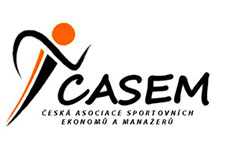Mirovský Tomáš, Novotný Jiří
Volunteer work at the 2018 Olympic Festivals in Brno – on some key organizational aspects of sports event project management and financial value of volunteers' work
The work quantifies the value of volunteer work that was done during the organization of the Olympic Festival (OF) in Brno in February 2018 based on the specification of individual volunteer positions according to the ISCO classification and the median average wage for each level for the South Moravian Region in February 2018.
The vast majority of sporting events cannot really do without the active involvement of volunteers. Mega sports events need to fill dozens of positions with staff for which they usually do not have the necessary budget and therefore supplement their organi-zational team with volunteers, hoping for a sufficient number of volunteers (i.e. quantity) but also for their competence (i.e. qua-lity). The task of volunteers is usually to provide those services that are in direct contact with spectators and active participants, especially in the case of mass sporting events. These activities are often a combination of "responsible/monotonous/stressful".
This paper compares the planned numbers of volunteers to deliver a 17 day long sporting event carrying a national impact with the actual numbers generated by accurate records throughout the project, and struggles to provide best possible answers to the question of what the additional cost to the organizer would have been if volunteers had not been part of the organizing team.
Keywords: Volunteers, mega sports events, Olympic Festival, Olympic Games, voluntary work, economic impact (value)
Full text ke stažení zde
Hospodková Petra, Šíma Jan, Rogalewicz Vladimír, Ledvina Zdeněk, Čubík Jakub, Opelík Daniel
Searching synergy between esport and academy: the role of sport faculties and departments in CEE countries
To identify the current challenges and barriers within the esports environment in the Central and East European countries and to explore the potential for collaboration between universities, particularly sports faculties, and the esports ecosystem. The research also aims to clarify the perceived roles of universities, including their research domains, within the context of esports.
Full text ke stažení zde
Crossan William, Šíma Jan, Kaprálková Michaela, Ruda Tomáš
Understanding internationalization variance within a sport brand: case study of the Sparta Prague ice hockey and football clubs
This article examines the internationalization of HC Sparta Prague (ice hockey) and AC Sparta Prague (football) by focusing on management decision-making. Using interviews with key personnel, it explores the varying levels of internationalization in these clubs, emphasizing their reliance on foreign players, the utility of foreign ownership, fan responses to foreign coaching, and marketing efforts toward foreigners. Football, being more global, is subject to ‘Europeanization,’ whereas ice hockey, centered in North America, is influenced by ‘Americanization’ and ‘eventification.’ Despite significant fan overlap and efforts at eventification, neither team has had success attracting Prague’s tourists and neither currently views it as an important market, instead focusing on the domestic Czech market. Both clubs have undergone various phases of ownership, from foreign investors to a return to Czech owners, reflecting broader social and economic changes in the region following the fall of communism. The article further discusses the influence of historical and cultural contexts on the acceptance and resistance to globalization influences, emphasizing the importance of preserving national identity and selectively integrating global elements within the modernization of sports. The study proposes that, despite the Sparta brand identity being heavily influenced by internationalization, it remains largely a Czech brand, and cultural sporting identity currently plays a more crucial role in resisting globalization than sport brand identity in Eastern Europe.
Full text zde
Crossan William, Šíma Jan, Kaprálková Michaela
Sport brand coexistence, competition and synergy: case study of the Sparta Prague ice hockey and football clubs
Sparta Prague, one name, one identity, multiple sports, multiple owners, emblematic of the frequent singular nomenclature, yet multifaceted, sports portfolio of European sport. This article examines the coexistence of the ice hockey club HC Sparta Prague and the football club AC Sparta Prague, focusing on management decision making and fan product decision making. While fans negotiate the allocation of their time and resources between the Czech Republic’s most cherished sporting disciplines, football and ice hockey, they do so within the framework of preferred brand loyalties. Meanwhile, marketing executives in both realms strategize whether to pursue synergistic collaborations or engage in competitive endeavours, all while navigating the terrain of entrenched fan allegiances. Despite the historical unity and shared nomenclature, Sparta hockey and Sparta football function as distinct corporate entities. In the Czech market, fans demonstrate steadfast loyalty to their preferred local brand across sports, thereby shaping both substitutive and complementary relationships between the two. Each club endeavours to optimize fan engagement, cultivate sponsor relations, and leverage broadcasting revenue within the confines of a finite, yet segmented market. Through synthesizing insights garnered from interviews with club managers and data derived from fan surveys, this study seeks to demonstrate the elements of substitution and complementarity within the collective brand identity of Sparta Prague.
Full text zde
